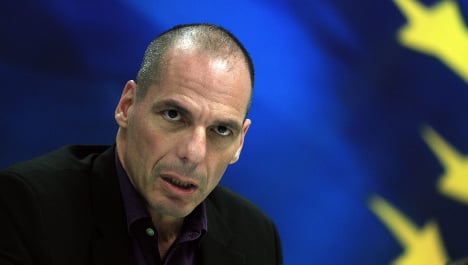“In the coming years the government expects only low income [from Greek debts] for the [German federal] budget, at the level of around €20 million per year,” the finance ministry wrote in an answer to parliamentary questions from the Left (Linke) party the Rheinische Post reported on Thursday morning.
Greece's economy has shrunk by a quarter since 2009, the answer revealed, while its debts have increased significantly.
Echoing the official line of their boss, Finance Minister Wolfgang Schäuble, the finance ministry analysts wrote that there is no other way out of the crisis for Greece than bailouts and austerity.
“The alternative to an adjustment programme would have been a disorderly state bankruptcy with extremely serious adjustment costs,” they said.
Greece has been dependent on financial aid from its partners in the Eurozone since private investors lost confidence in the country.
Between 2009 and 2014 its debts grew from €301 billion to €318 billion.
And massively weakened economic activity in Greece has led to a collapse in Gross Domestic Product (GDP) to €187 billion in 2014 – a fall of 22 percent compared with 2009 – with its debts now standing at 176.3 percent of its income.
Greece's government is struggling to fill the holes in its finances, with privatisation of state properties bringing in just €1 billion rather than a hoped-for €20 billion.
Meanwhile, unemployment grew to 25.8 percent by the end of 2014, while the poverty rate stood at 20 percent in 2013 – almost double 2009's figure.
The recently-elected radical left Syriza government managed to agree to a last-minute extension to the Greek bailout programme with fellow Eurozone countries, although it had to abandon its hopes of rapidly renegotiating the terms under which it continues to receive financial aid.
There are already fears that Greece will need a further bailout within a few months, with the Spanish government recently saying that Greece could need as much as €50 billion by June.
German politicians continue to dispute the reasons for Greece's misery, with the Left opposition pointing at Berlin-imposed austerity measures while Schäuble blames decades of reckless spending by former Greek governments.



 Please whitelist us to continue reading.
Please whitelist us to continue reading.
Member comments